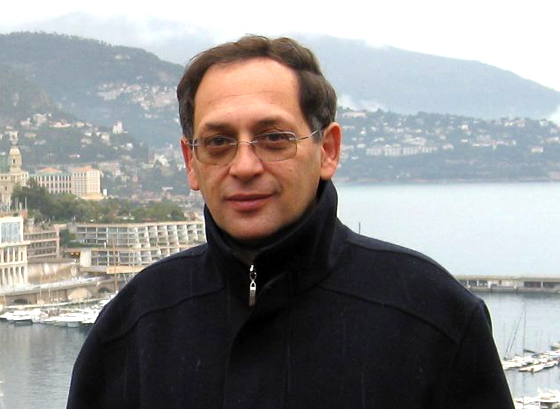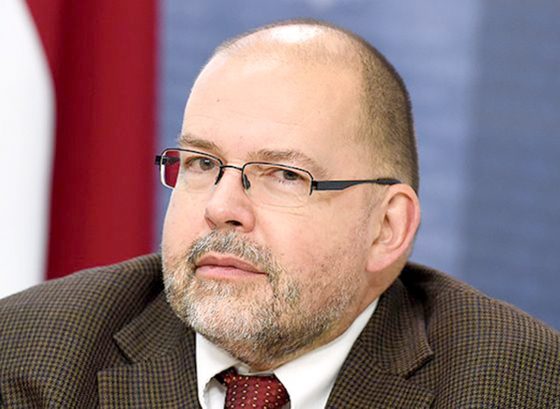“Richness of Iranian History Is without Analog in Islamic World,” Underlines George Sanikidze

Since 1985 he works at G. Tsereteli Institute of Oriental Studies and from 2003 he is the director of the institute. He worked as a research fellow at University of California, Berkeley, Sorbonne -III Paris and Sorbonne IV, Paris, also at the Universities of Hokkaido and Osaka. At various times he was awarded with scholarships and grants. He is the member of the “Middle East and Africa Research Association”, “The International Association of Persian Societies” (regional office), “International Society for Iranian Studies”, “Society for Central Eurasian Studies”. In 2012, he was awarded with “Pharabi International Prize” for research done in the field of Iranian Studies and Studies of Islam.
AVA Diplomatic’s Exclusive Interview with Giorgi Sanikidze,
Full Professor And Director of G. Tsereteli Institute of Oriental Studies at Ilia State University of Georgia
Interview by Mohammadreza Nazari
You are the President of the G.Tsereteli Institute of Oriental Studies of Georgia. What are the objectives of this institute?
G. Tsereteli Institute of Oriental Studies was founded in 1960. The Institute is the main research center in Georgia in different fields of Middle Eastern Studies. The main fields of research activities of the Institute are: linguistics, literature, culture, history and politics of the Middle Eastern and Caucasian countries; Cultural and historical interactions of Georgia and the Middle East; different aspects of East-West relations.
Departments of the Institute are: 1) Ancient Near eastern languages 2) Semitic Studies 3)Indo-Iranian languages 4) Persian literature 5) Turkish studies 6) Mediaeval history of the Middle East 7 ) Modern history and politics of the Middle east 8) Byzantine studies 9)Laboratory of general phonetics and typology of Oriental languages.
Periodicals of the Institute are: Middle East and Georgia; Semitic studies; Typological researches (all in Georgian with English summaries); Orientalist (multilingual).
How do the activities of your institute relate to Iranian studies?
Iranian Studies is one of the main fields of research in the Institute. Research in this field is conducted in the following Departments: Indo-Iranian languages; Persian literature; mediaeval history of the Middle East; Modern history and politics of the Middle East. Researchers of the Institute have published several scientific works in these fields. Among them it can be cited collections of articles: La Géorgie entre la Perse et l’Europe. Nathkhebia I. et Hellot-Bellier F. (eds). Paris: L’Harmattan, 2009. Special issue ’Georgia and Iran’ of the Journal of Persianate Studies. Leiden: Brill, v.1, No.2, 2008.
What changes did the field of Iranian Studies face in Georgia after the dissolution of the Soviet Union?
After the dissolution of the SU there were important changes in the field of Iranian Studies in Georgia. Now there is a possibility for direct contacts and collaboration with foreign (first of all Iranian) colleagues, to work in different centers for Iranian studies in the world, to participate in international scientific meetings and to publish research works abroad. During the Soviet times there were no possibilities for such activities.
Your works on the Iranian history have been quite extensive. What was your incentive for such wholehearted effort?
I’m interested on Iranian history from the first years of my study in the university because of the richness of Iranian history, which is without analogue in the Islamic world and the whole world and the peculiarities of historical development of Iran and, most important of all, the centuries-old close contacts (historical, cultural) of Iran with Georgia.
What did encourage and interest you to work and research on Iran’s political and religious structures?
The specific characteristic of Iranian history is conditioned by the extremely important role of religious structures and its political activities and so there are several problems which must be studied in the future.
Given the fact that you have also conducted researches on the Tobacco Movement and the Constitutional Revolution in Iran, and published a number of works related to these topics, how influential do you find the role of the Shia’ clergy and other religious figures in Iran’s history?
As I noted above, the peculiarities of Iranian history is conditioned by the important role of Shi’a clergy. The Shi’a Clergy appeared as a leading force in the oppositional movements in Iran’s modern history; especially it concerns Tobacco movement and Constitutional revolution.
Iran’s Islamic Revolution of 1979 was also the subject of some of your researches. In what ways, in your opinion, has the Islamic Revolution influenced the developments in the Middle East?
The Islamic revolution in Iran demonstrated to the whole world that the region of the Middle East has several peculiarities, is different from other regions and has his special way of development. I must add that considering the importance of this event, it’s quite difficult to answer on this very important question in some words
As a researcher with historical and political interests, how do you find Iran’s current position in the developments of the Middle East?
Without doubt, today Iran is the leading power in the Middle East and several issues concerning the political situation in the Region depends on Iran’s attitude towards them.
In your opinion as a Middle-East expert, what characteristics of Iran would separate it as a Middle-Eastern country from other countries in the region?
Iran, in difference of several other countries of the Region, has his own rich and peculiar history (perhaps, Iran is the first political entity in the world), with Shi’a branch of Islam as a state religion, he differs also from other countries of the Region. It’s worth also to note that the reach cultural heritage of Iran is without parallel in the Region.
In 2010, you visited Iran to take part in the “Scientific Conference on Islam and Muslims of Georgia.” What were the most important subjects you discussed there?
I’ve discussed the peculiarities of Islam, as of the religion of minorities, in Georgia, specific religious practices of different groups of Georgia’s Muslims.
You have worked on subjects such as the presence of Islam in the Soviet Union and in Georgia in particular, how does the approach to Islam in this country differs from that of the other countries?
Georgia always was and today is multiethnic and multi-confessional country. In the Soviet period atheistic propaganda didn’t allow the deep scientific study of religion and religious groups but today Georgian scholars have the possibility of research in this field. Already there are several publications concerning Islam and Muslims in Georgia. Methodological approaches in these works don’t differ from approaches approved in today’s researches in the world but there is specificity in the works of Georgian researchers conditioned by the peculiar traits and development of Islam in Georgia.
Considering the ever increasing violence in the Middle East, is any similar wave of violence foreseeable to appear in Caucasus, too?
I can’t predict what will be in the future but if we consider political and social tensions in the Caucasian region the danger of the violence in the future can’t be excluded.
With extremism now prevailing under the name of religion in the Middle East, especially in Iraq, what is your personal analytical take on the subject?
First of all, today’s extremism in Iraq and Syria is not a problem only of the Region but of the whole world. I think that the problem is connected with several mistakes of world’s leading powers in their politics towards these countries – they tried to ‘create’ new states in conformity with their ideologies and political preferences without considering local peculiarities.
In your opinion the root ideology of ISIS is supported by which think tanks and policy makers?
It’s quite complicated question. I can only stress that there are influential forces as in the West as in the Middle East who tried to use ISIS for their political aims and goals.
In your point of view, is there a meaningful relationship between the ideologies of forces such as ISIS with that of other forces such as Chechen fighters?
As it is known, among ISIS fighters there are citizens of several countries but Chechens are considered as most experienced among them because of their past opposition with Russian Army. I think that Russia’s wars in Chechnya conditioned the spread of radical ideologies among these fighters.
How the crisis between Russia and Ukraine could increase and lead to the continuation of the violence in that region?
I don’t think that the Ukrainian crisis will directly affect the situation in the Middle Eastern region but in today’s globalized world it can’t be excluded that this crisis will have consequences even in the Middle East.
In your opinion how would Georgia’s intention to gain a NATO membership affect its relations with Russia and the United States?
Russia’s policy towards Georgia can be considered as aggressive – Russia annexed Georgian regions and after proclaimed their ‘independence’. I think that if Russia’s policy towards Georgia in the past 20 years was more pragmatic and friendly, there will be no problems in relations between these two countries and Georgia’s aspiration to become a member of NATO is conditioned by the political mistakes of Russia.




